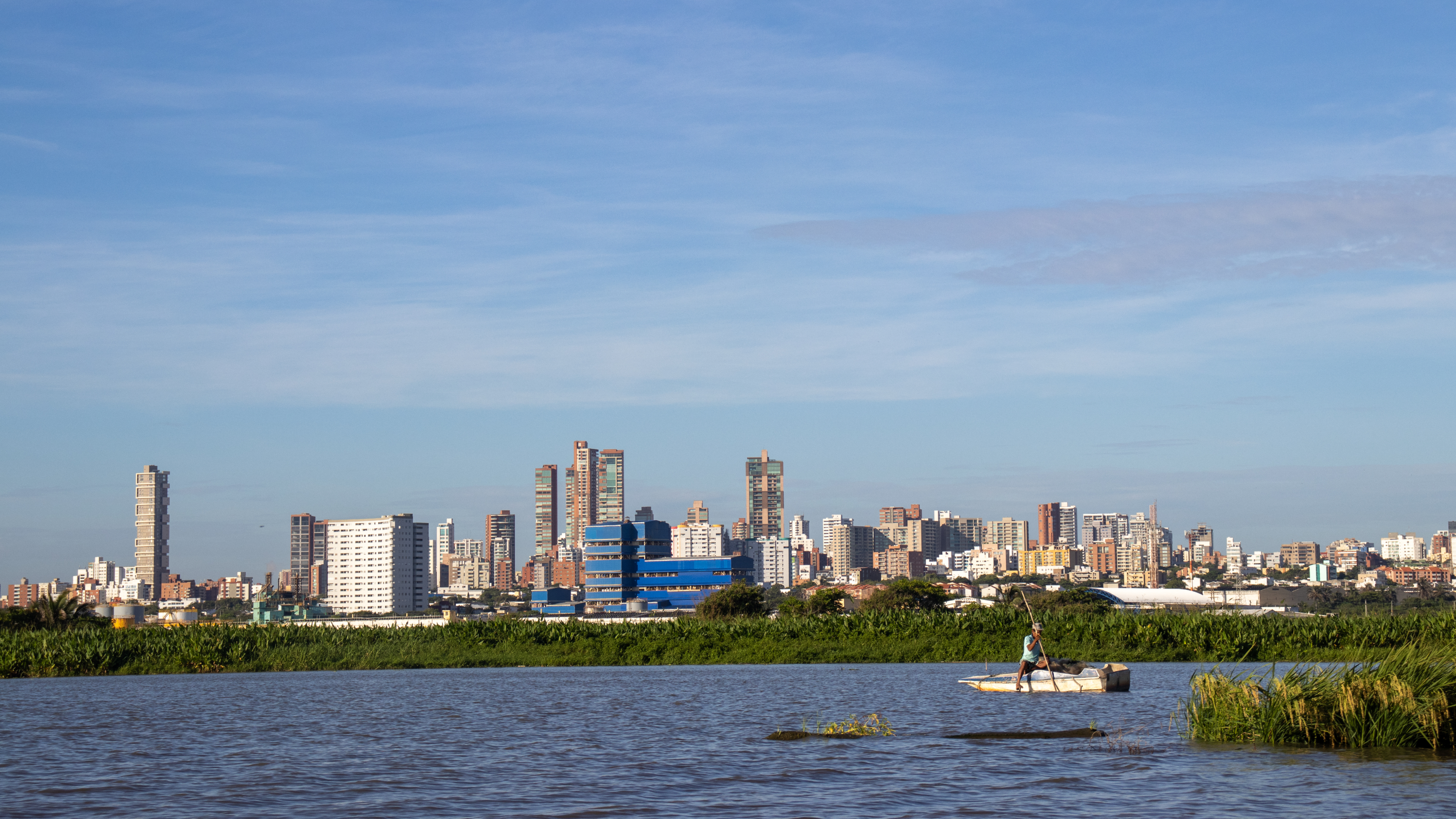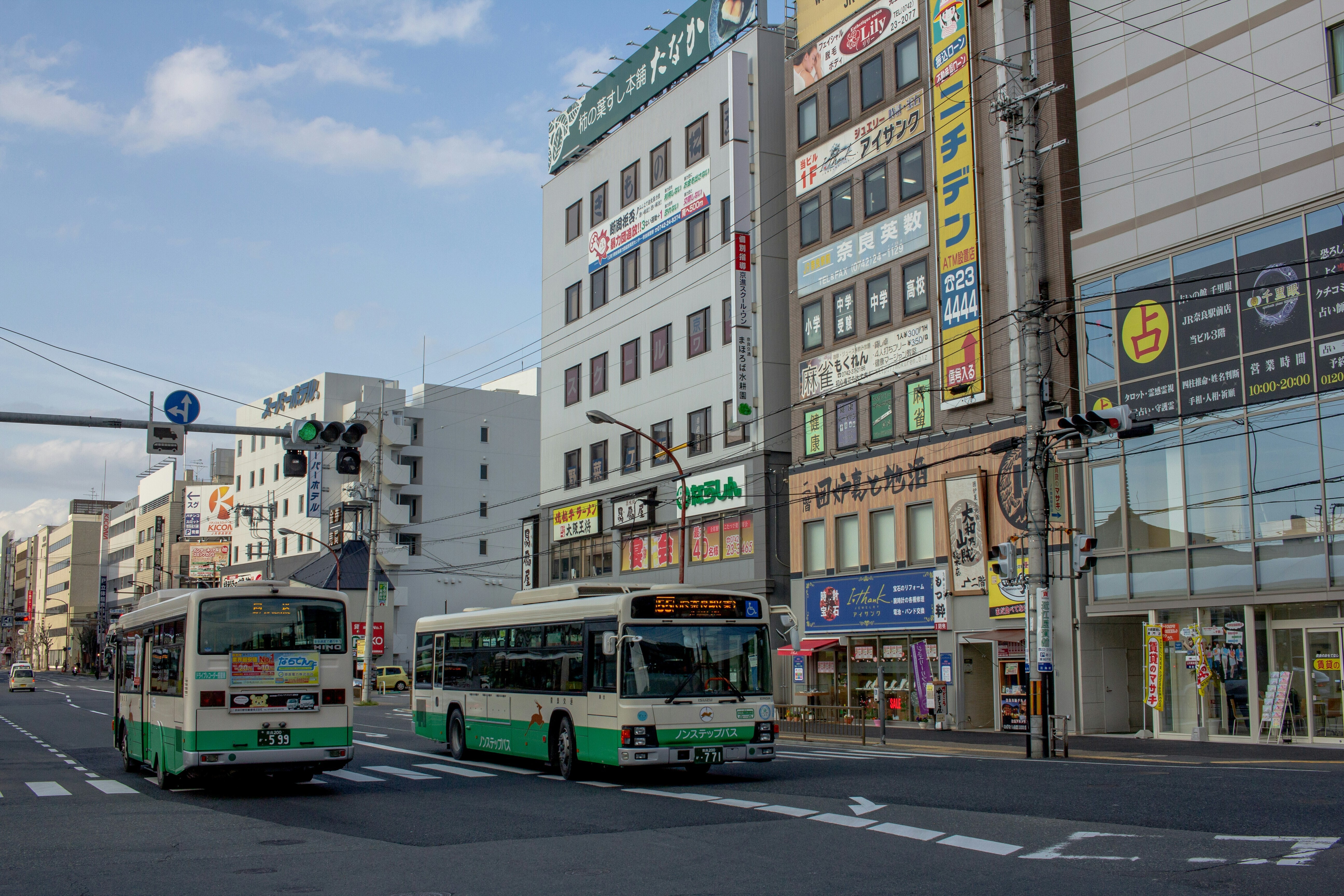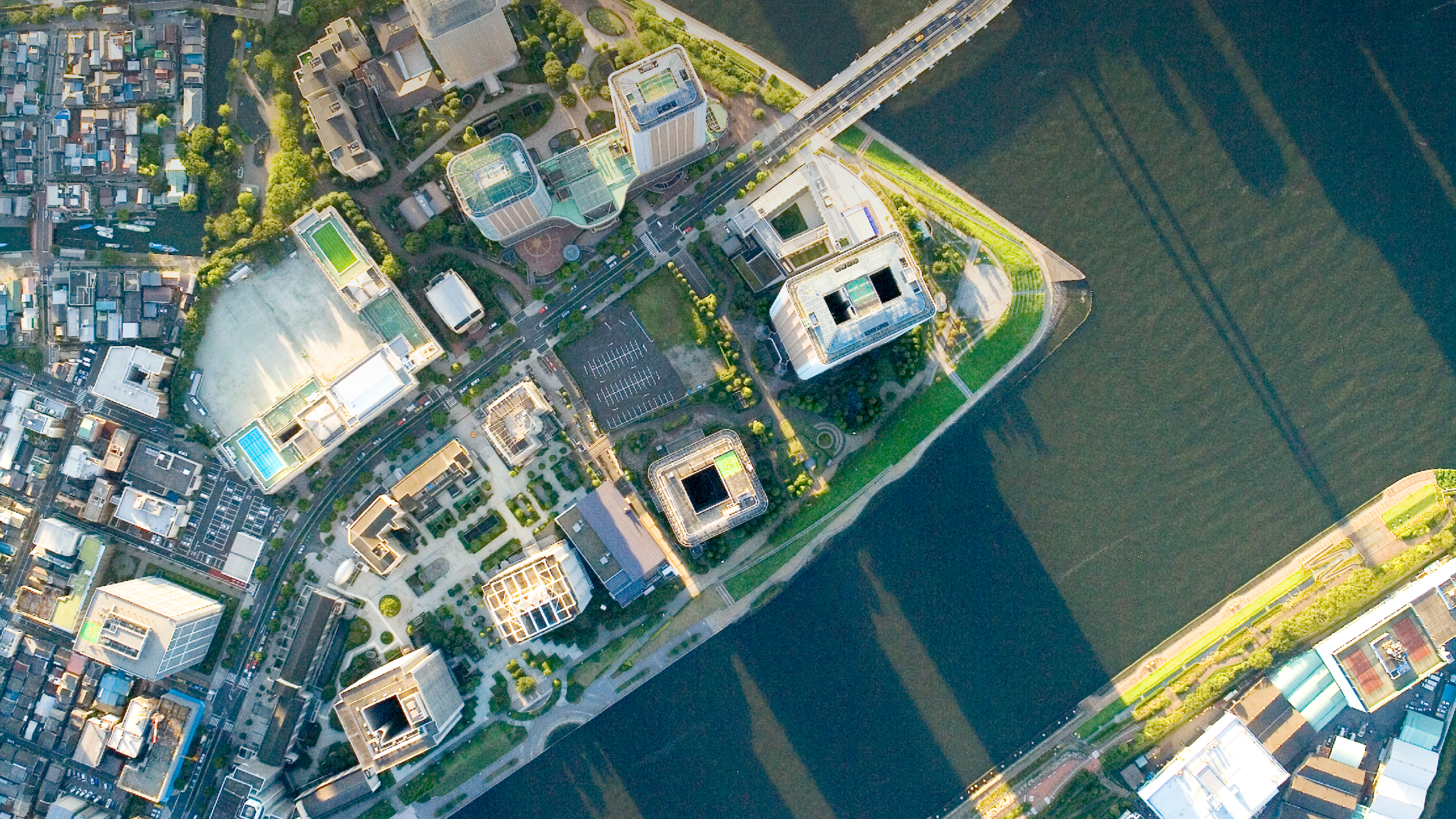How innovative finance is building nature-based urban resilience in Africa

Durban, South Africa, is benefitting from a new nature-positive fund for urban resilience. Image: iStockphoto/Ojas Narappanawar
- The rapid growth of many cities not only surpasses geographical boundaries, it also outpaces traditional financing tools.
- That's why African cities like Durban, South Africa and Nouakchott, Mauritania are using new, innovative financing instruments to fund mitigation and adaptation projects.
- These public-private investment funds prioritize nature-positive interventions and can also ensure revenue generation for projects that struggle with bankability.
As cities grow, they can sprawl out of the old city boundaries into nature. Traditional infrastructure is often challenged to keep up with this. New infrastructure is then required to meet the needs of a city's communities while also respecting and protecting the natural environment and preparing for climate change and more frequent natural disasters.
Durban, also known as the eThekwini Municipality, is the third-largest city in South Africa. It is home to more than 4.1 million people and has over 4,000 kilometres (km) of rivers and almost 100 km of coastline. The city is facing profound development challenges due to unsteady energy supply, migration and informal settlements, and the impacts of climate change. In this context, social development priorities often hinder the environmental agendas and budget allocation for nature-related interventions that can have resilience dividends in the medium and long term.
In 2021, a new fund, The Urban Resilience Fund (TURF), was created to respond to urban challenges like Durban’s. It aims to address and support the development and financing of resilience – more specifically, water and sanitation, solid waste, transport and social infrastructure projects that promote urban resilience in both Europe and Africa.
Financing urban resilience
TURF is a €500 million-target blended finance fund. It was initially developed as a public-private partnership between independent investment benefit corporation and asset manager Meridiam, the Rockefeller Foundation, the United Nations Capital Development Fund (UNCDF) and the European Investment Bank. It aims to support cities in designing and investing in highly impactful, sustainable and resilient urban infrastructure.
The fund’s main objective is to develop essential infrastructure, as outlined in city resilience plans, to respond to growing needs. It has three windows that focus on Africa, Europe and early-stage projects.
The multistakeholder partnership supporting this fund combines project finance from multiple players enabled by private finance and appropriate fund management. Seven development finance institutions (DFIs) and private investors (such as pension funds) are involved in equity programmes across the fund.
It aligns resilience requirements among all parties to assess projects from inception through to investment and asset management. It also uses sustainability assessment tools to monitor the project investment strategy.
Modelling risk and prioritizing action
A key enabler of urban resilience is data management and monitoring. Durban uses analytical tools to predict climate risk using a Climate Risk Profile Tool. It manages the risk with the appropriate policy through a Climate Actions Tool.
The Climate Risk Profile Tool demonstrates the risk levels of different regions of the municipality for major hazards such as fire, inland and coastal flooding, drought and extreme heat. The Climate Actions Tool then defines critical actions and policies for cities to implement across a range of sectors – from governance and food security to transport and health.
These tools estimate the impact of natural risks and hazards to enable Durban to appropriately prepare for short-term challenges and develop action plans and strategies to mitigate future problems. Modelling and prioritization of actions is not enough when it comes to securing urban resilience in the long run, however.
Building long-term bankability
Securing funding for mitigation and adaptation projects is crucial in bolstering resilience for cities facing the immediate impacts of climate change. Unfortunately, only a small number of these projects have attracted private-sector investment due to their limited bankability. TURF’s catalytic fund aims to embed bankability into project design, making these initiatives more attractive to investors.
Cities like Durban can make use of existing analytical tools and draw lessons from other places like Nouakchott, the capital of Mauritania. It has successfully navigated the complex pathway of resilience implementation and funding. Nouakchott is naturally protected by a dune ridge, which traditionally protected it from submersion risks. Decades of human activity have severely degraded this ridge, however, leaving the city increasingly vulnerable to rising sea levels, further coastline erosion and flood damage.
A public-private company was established to safeguard Nouakchott against these threats, while also enhancing the quality of life for its residents by integrating attractive public spaces into urban planning and mobility schemes. This entity, Société d’Aménagement du Littoral de Nouakchott (SALN) is jointly owned by Meridiam and the Government of Mauritania. It will manage the financing, design, construction and operation of an integrated coastal protection and urban development project. This phased project is set to be completed by 2027. Revenue will be generated from infrastructure use (such as rental of new premises and tolls), land leases to developers and an annual government subsidy.
This approach encourages a rethinking of public-private collaboration, promoting new models and structural reforms that prioritize nature-positive interventions at all levels. It also ensures revenue generation for projects that typically struggle with bankability. These public-private investment funds play a crucial role in the financing landscape for nature-positive cities.
By integrating tools like TURF into city planning, local governments can unlock new, innovative solutions that predict and manage natural disaster risks through the values of existing healthy ecosystems. This is especially impactful for areas with informal development or limited infrastructure. It offers hope for a more resilient and nature-positive future for cities.
This article is part of Nature Positive: Leaders’ Insights for the Transition in Cities, a report by the Global Commission on Nature-Positive Cities offering a range of strategies and practical solutions adaptable to diverse urban environments and supporting a shift towards nature-positive city developments.
Nature-Positive Cities is an initiative by the World Economic Forum, in collaboration with Oliver Wyman.
Don't miss any update on this topic
Create a free account and access your personalized content collection with our latest publications and analyses.
License and Republishing
World Economic Forum articles may be republished in accordance with the Creative Commons Attribution-NonCommercial-NoDerivatives 4.0 International Public License, and in accordance with our Terms of Use.
The views expressed in this article are those of the author alone and not the World Economic Forum.
Stay up to date:
Cities and Urbanization
Related topics:
Forum Stories newsletter
Bringing you weekly curated insights and analysis on the global issues that matter.
More on Built Environment and InfrastructureSee all
Simon Torkington and David Elliott
November 27, 2025







